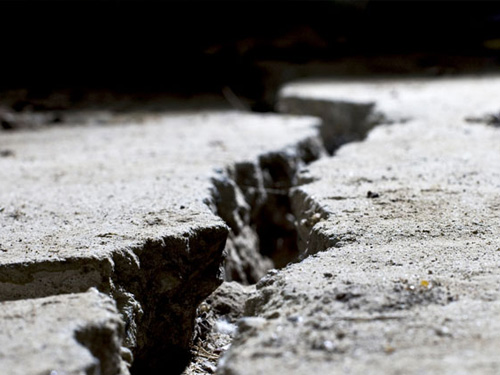PERIMETER BLOG
LATEST NEWS & INTERESTING FACTSFast forward a few months. It’s a sunny day in May. You’re watering the lawn with a hose in your shorts, half-paying attention as you drench the petunias in water you hopefully saved up over the wet winter months.
But then you notice it. There, on the side of the house, you get that feeling you used to get when someone ran their fingernails down the chalkboard in school.
A gigantic crack snaking its way from the base of your house.
Your foundation is in trouble.
The Cause
Cracks in a house’s foundation occur because there’s space that’s unaccounted for beneath your house. This is either because your house was built on unstable ground to begin with, or the earth has been permeated by moisture which has eroded at the sediment supporting your foundation. Water flowing through the ground over the years will carry silt and earth away, leaving voids or air pockets that aren’t holding up a thing.
In any case, the land-bearing ability of the ground is compromised and isn’t supporting every inch of the house like it should.
The Fix
One way to fix a cracked foundation is to repair the structural integrity of the foundation itself. An epoxy injection into the crack will actually be stronger than it was prior to the break.
The only problem is that if the foundation has shifted, or the shape has been altered, then the stress from the voids in the ground will be transferred somewhere else.
Another fix is to use a peel and stick elastomeric polymer that will conceal the crack and allow it to shift while also keeping water out.
Because as you can imagine, the only thing worse than a cracked foundation is a cracked foundation that’s allowing water in, which will erode, freeze and ultimately, destroy.
And then you’re really in trouble.
Preventing a Cracked Foundation
Team Perimeter is all about prevention, which you’re fully aware of if you’re a regular reader here at the ol’ blog. We’d rather you pay close attention to your home’s foundation and drainage system before you need to pick up the phone and spend a bunch of money to get them fixed.
Here’s how you can do that.
Grading: the most important way to save your foundation is to build your home on stable, level ground. Hire a contractor with a good reputation and a track record of results when you’re landscaping for a new house and eventually pouring concrete.
Keep it dry: make sure your gutters and downspouts are carrying stormwater far away from the base of your house. Nothing causes more grief for a home than collected water, so follow all the advice we’ve talked about the past few months. Natural and man-made berms, swales and creeks will help, as well as creeks and thirsty plants.
Keep Your Eyes Peeled: most foundation issues can be solved before they happen by remaining diligent. If water isn’t draining properly from your property or it’s collecting, then you might not yet have a foundation issue, but you will if you don’t deal with the problem.
We’ve still got some winter left to mope through, Vancouver, so now more than ever it’s crucial to pay close attention to your foundation and all the elements that could add up to a costly bill in the future.

